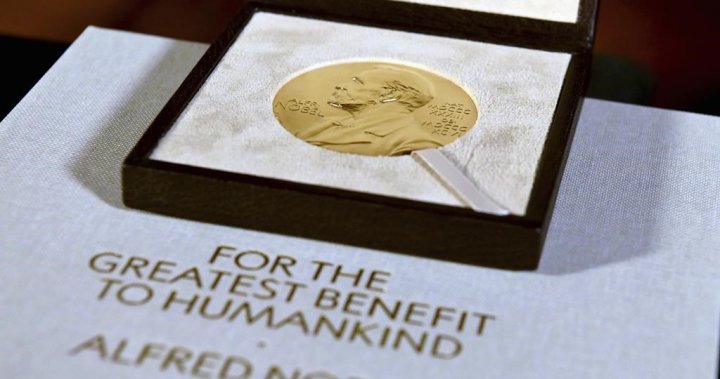
Nobel Peace Prize awarded to activists from Ukraine, Russia, Belarus amid war
Global News
This year's Nobel Peace Prize is going to jailed Belarus rights activist Ales Bialiatski, the Russian group Memorial and the Ukrainian organization Center for Civil Liberties.
This year’s Nobel Peace Prize is going to jailed Belarus rights activist Ales Bialiatski, the Russian group Memorial and the Ukrainian organization Center for Civil Liberties, the award’s judges said Friday.
Berit Reiss-Andersen, chair of the Norwegian Nobel Committee, said the judges wanted to honor ”three outstanding champions of human rights, democracy and peaceful coexistence in the neighbor countries Belarus, Russia and Ukraine.”
“Through their consistent efforts in favor of human values and anti-militarism and principles of law, this year’s laureates have revitalized and honored Alfred Nobel’s vision of peace and fraternity between nations, a vision most needed in the world today,” she told reporters in Oslo.
The award follows a tradition of highlighting groups and activists trying to prevent conflicts, alleviate hardship and protect human rights.
Last year’s winners have faced a tough time since receiving the prize. Journalists Dmitry Muratov of Russia and Maria Ressa of the Philippines have been fighting for the survival of their news organizations, defying government efforts to silence them
They were honored last year for “their efforts to safeguard freedom of expression, which is a precondition for democracy and lasting peace.”
A week of Nobel Prize announcements kicked off Monday with Swedish scientist Svante Paabo receiving the award in medicine for unlocking secrets of Neanderthal DNA that provided key insights into our immune system.
Three scientists jointly won the prize in physics Tuesday. Frenchman Alain Aspect, American John F. Clauser and Austrian Anton Zeilinger had shown that tiny particles can retain a connection with each other even when separated, a phenomenon known as quantum entanglement, that can be used for specialized computing and to encrypt information.
